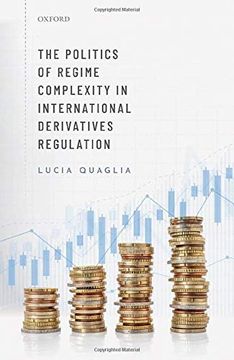Synopsis "The Politics of Regime Complexity in International Derivatives Regulation"
This book provides the first comprehensive account of post-crisis international regulation of derivatives by bringing together the international relations literature on regime complexity and the international political economy literature on financial regulation. It addresses three questions: What factors drove international standard-setting on derivatives post-crisis? Why did international regime complexity emerge? And how was it managed and with what outcomes? This research innovatively combines a state-centric, a transgovernmental, and business-led explanations. It examines all the main sets of standards (or elemental regimes) concerning various aspects of derivatives markets, namely: trading, clearing, and reporting of derivatives; resilience, recovery and resolution of central counterparties; capital requirements for bank exposures to central counterparties and derivatives; margins for derivatives non-centrally cleared. It is argued that regime complexity in derivatives ensued from the multi-dimensionality and the interlinkages of the problems to tackle, especially given the fact that it was a new policy area without a focal international standard-setter. Despite these challenges, international cooperation resulted in relatively precise, stringent, and consistent rules, even though there was variation across standards. The main jurisdictions played an important role in managing regime complexity, but their effectiveness was constrained by limited domestic coordination. Networks of regulators gathered in international standard-setting bodies deployed a variety of formal and informal coordination tools to deal with regime complexity. The financial industry, at times, lobbied for less precise and stringent rules and engaged in 'venue shopping', whereas, other times, it contributed to the quest for regulatory consistency.

